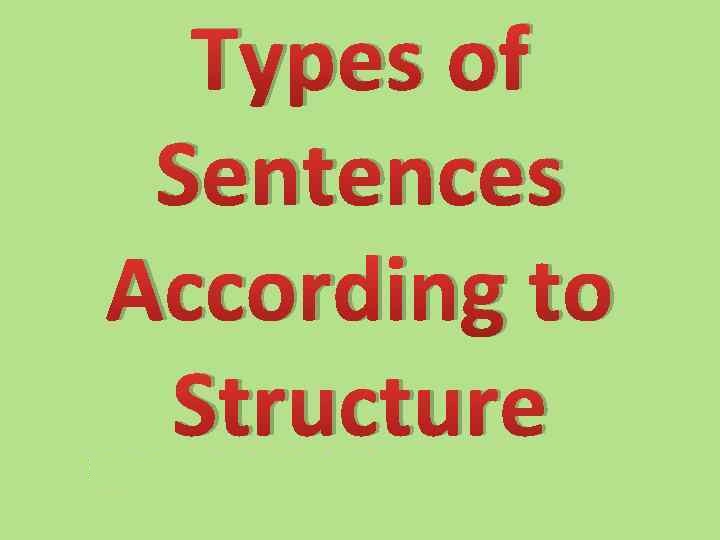A sentence can consist two types of clauses dependent and independent. Dependent clauses in contrast cannot stand alone because they do not express a complete thought even though they have a subject and a verb but independent clauses are complete sentences because they have a subject and verb and express a complete thought.
Four Types of Sentence According Structures Wise

Four Types of Sentence According Structures Wise
Simple Sentences
A simple sentence has one independent clause. That means simple sentence has one subject and one verb although either or both can be compound. A simple sentence can have adjectives and adverbs.
Examples:
- I bought a chair.
- He ate a mango.
- She goes to college.
- They are laughing.
Compound Sentence
A compound sentence has at least two main clauses connected by coordinating conjunctions. It has no dependent clause. A compound sentence can’t have any subordinate clauses.
Example:
- I wrote him a letter but he didn’t reply me.
- She failed many times yet she is not disappointed.
- I needed help; he helped me.
Complex sentence
A complex sentence contains one independent clause and at least one dependent clause. The independent clause is called the “main clause.” These sentences use subordinating conjunctions to link ideas.
Example:
- I saw a man who was wearing a white shirt.
- The girl bought a doll which sings a song.
- She gifted me a book that has a great knowledge.
Compound sentence
A compound sentence has at least two main clause and one or more subordinate clauses. It can also be called compound sentence.
Example:
- I like Physic, but my friend likes Biology who wants to become a doctor.
- I waited for him, but he didn’t come which disappointed me.
- She bought a green shirt and I bought brown shirt which looks very decent.
